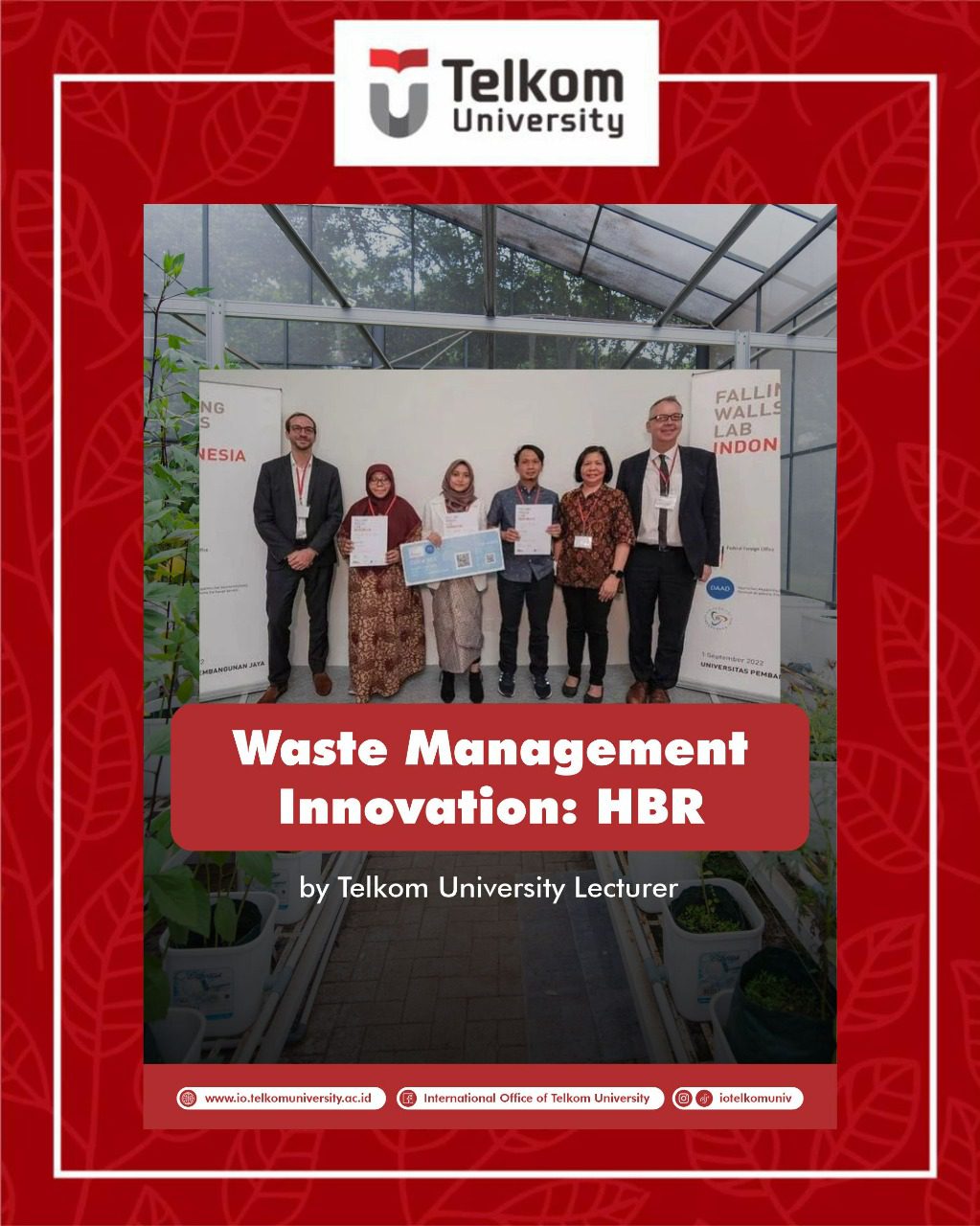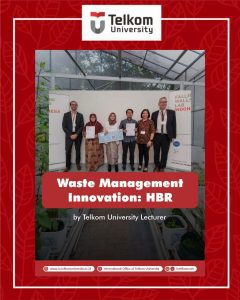
Waste Management Innovation: HBR by Telkom University Lecturer
Waste management, often known as waste disposal, refers to the procedures and actions necessary to control waste from its creation to its ultimate disposal. One of the lecturers at Telkom University School of Electrical Engineering, Amaliyah Rohsari Indah Utami, was moved to make an innovation in waste management, named the Hybrid Bioreactor (HBR). Her waste management innovation (HBR) was also included in a world-class competition, Falling Walls Lab.
Falling Walls Lab is a world-class competition that is participated by around 60 countries every year. The FWL was initiated by the German Academic Exchange Service or Deutscher Akademischer Austauschdienst (DAAD). This is the 7th year that the Falling Walls Lab has been held in Indonesia and Universitas Pembangunan Jaya (UPJ) has been appointed as the host for the 2022 FWL Indonesia final which was held on September 1st, 2022 at Theater 1 Building A, Universitas Pembangunan Jaya.
Amaliyah Rohsari Indah Utami with her idea of Breaking the Wall of Inefficient Waste Pretreatment won the second place in the Falling Walls Lab (FWL) Indonesia 2022 competition. Amaliyah explained that HBR is an innovation to process organic waste in 25 days; it’s 5 days faster than the natural decomposition process. It is designed to optimize both aerobic and anaerobic processes in one system producing solid nano-compost and liquid fertilizer. Five kilograms of organic waste can be converted into 12% solid Nano Compost and 88% liquid fertilizer.
“In my research, application of Nano Compost and a mixture of liquid fertilizer on infertile soil in a one-to-one ratio resulted in a 63% increase in healthier tomatoes, eggplants, and chilies, compared to synthetic fertilizers and infertile soils in the same ratio”, she explained.
Waste in South East Asia
Amaliyah added that according to the United Nations Environment Program, by 2021, Indonesia produced nearly 21 million tons of organic waste, the highest in East Asia. So far, the community manages organic waste with an inefficient initial processing process. Some people burn organic waste without knowing that it can produce harmful gas emissions. Others dispose of organic waste to decompose naturally. Unfortunately, this natural process takes more than 1 month and results in piles of organic waste and untreated gas emissions.
“People need a solution to speed up the safe decomposition of organic waste. Thus, I came up with HBR innovation. In this way, HBR is environmentally friendly and can be the best alternative solution for managing organic waste”, she said
Amaliyah hopes that through this waste management innovation, she can break down the Wall of Inefficient Waste Pretreatment in Indonesia and throughout the world.
Congratulations, Ms. Amaliyah! We are so proud to have you as one of the best lecturers and researchers at Telkom University.(IO)***

